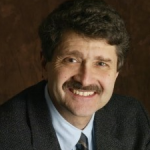 Source: USA Today | Michael Medved
Source: USA Today | Michael Medved
The nation’s increasingly visible and influential gay community embraces the notion of sexual orientation as an innate, immutable characteristic, like left-handedness or eye color. But a major federal sex survey suggests a far more fluid, varied life experience for those who acknowledge same-sex attraction.
The results of this scientific research shouldn’t undermine the hard-won respect recently achieved by gay Americans, but they do suggest that choice and change play larger roles in sexual identity than commonly assumed. The prestigious study in question (released in March by the National Center for Health Statistics and the Centers for Disease Control and Prevention) discovered a much smaller number of “gays, lesbians and homosexuals” than generally reported by the news media. While pop-culture frequently cites the figure of one in 10 (based on 60-year-old, widely discredited conclusions from pioneering sex researcher Alfred Kinsey) the new study finds only 1.4% of the population identifying with same-sex orientation.
Moreover, even among those who describe themselves as homosexual or bisexual (a grand total of 3.7% of the 18-44 age group), overwhelming majorities (81%) say they’ve experienced sex with partners of the opposite gender. Among those who call themselves heterosexual, on the other hand, only a tiny minority (6%) ever engaged in physical intimacy of any kind with a member of the same sex These figure indicate that 94% of those living heterosexual lives felt no physical attraction to members of the same sex, but the great bulk of self-identified homosexuals and bisexuals feel enough intimate interest in the opposite gender to engage in erotic contact at some stage in their development.
A One-Way Street
Gay pride advocates applaud the courage of those who “come out,” discovering their true nature as homosexual after many years of heterosexual experience. But enlightened opinion denies a similar possibility of change in the other direction, deriding anyone who claims straight orientation after even the briefest interlude of homosexual behavior and insisting they are phony and self-deluding. By this logic, heterosexual orientation among those with past gay relationships is always the product of repression and denial, but homosexual commitment after a straight background is invariably natural and healthy. In fact, numbers show huge majorities of those who “ever had same sex sexual contact” do not identify long-term as gay. Among women 18-44, for instance, 12.5% report some form of same sex contact at some point in their lives, but among the older segment of that group (35-44), only 0.7% identify as homosexual and 1.1% as bisexual.
In other words, for the minority who may have experimented with gay relationships at some juncture in their lives, well over 80% explicitly renounced homosexual (or even bisexual) self-identification by age of 35. For the clear majority of males (as well as women) who report gay encounters, homosexual activity appears to represent a passing phase, or even a fleeting episode, rather than an unshakable, genetically pre-determined orientation.
The once popular phrase “sexual preference” has been indignantly replaced with the term “sexual orientation” because political correctness now insists there is no factor of willfulness or volition in the development of erotic identity. This may well be the case for the 94% of males and 87% of females (ages 18-44) who have never experienced same-sex contact of any kind and may never have questioned their unwavering straight outlook — an outlook deemed “normal” in an earlier age.
‘Let Go’ of One in 10
For the less than 2% of men and women who see themselves as gay, however, the issue of sexual orientation remains vastly more complicated. Within a month of the release of the CDC/NCHS report, one of the world’s most respected think tanks on gay life confirmed some of its most surprising findings, without specifically referencing the recent government study. UCLA’s Williams Institute on Sexual Orientation Law and Public Policy offered a new estimate of homosexual identification: concluding that 1.7% of Americans say they’re gay, and a slightly larger group (1.8%) identified as bisexual — by definition attracted to both genders and shaping their sexual behavior through some mixture of inclination and preference.
Brad Sears of the Williams Institute defended the accuracy of these numbers, suggesting gay leaders “let go” of previous, unrealistic estimates of homosexual orientation. He told the Associated Press that “with other populations of a similar size of 2% to 4%, we don’t question whether there are too many or too few.” For instance, no one suggests Jewish Americans should be treated with contempt or dismissed as irrelevant to the Christian majority because they number below 2% of the U.S. population. Nor would the news media shy away from reporting that in an age of religious conversion, choice plays a role in adding to and subtracting from the Jewish community.
Religious identity arises from birth, upbringing, instinct, even destiny, but the fact that it almost always includes some element of choice doesn’t entitle the believer to less respect. By the same token, it’s no sign of hostility or homophobia to point to recent data suggesting that life experience and personal decisions play roles alongside inborn inclination in the complex, sometimes inconclusive, emergence of the gay and lesbian identity.

Michael Medved, author of The 5 Big Lies About American Business, hosts a daily, nationally syndicated radio talk show.

Leave a Reply to cynthia curran Cancel reply